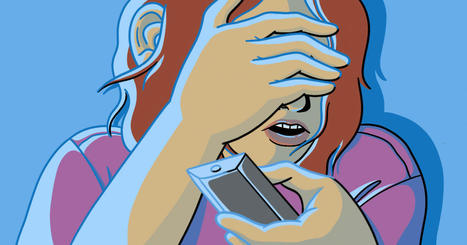Since becoming a mom, I've noticed I can no longer handle violence or children and peril on TV. Just me?
Research and publish the best content.
Get Started for FREE
Sign up with Facebook Sign up with X
I don't have a Facebook or a X account
Already have an account: Login
 Your new post is loading... Your new post is loading...
 Your new post is loading... Your new post is loading...
|

Jerri Lynn Hogg's curator insight,
June 24, 2015 6:11 AM
Sign of the times as we shift to adapt to the influence of technology. The question remains how this shift influences our behavior. Will the developed neural pathways provide us with the additional sensory information we need to not make this a really unsafe idea? |
















There are a lot of physical changes when you become a mom. Some research suggests that pregnancy impairs memory temporarily. It certainly was true for me, although I think that's nature's way of making the next kid seem like a good idea. (It was.) The hormonal changes also increase the drive to connect and heighten sensitivity to danger to protect your young -- all of which makes sense from an evolutionary perspective. Thus we gain vigilance and lose the ability to sleep deeply through the night and movies with gore or child abduction lose their appeal. #mediapsychology #parenting #fightorflight #scarymovies